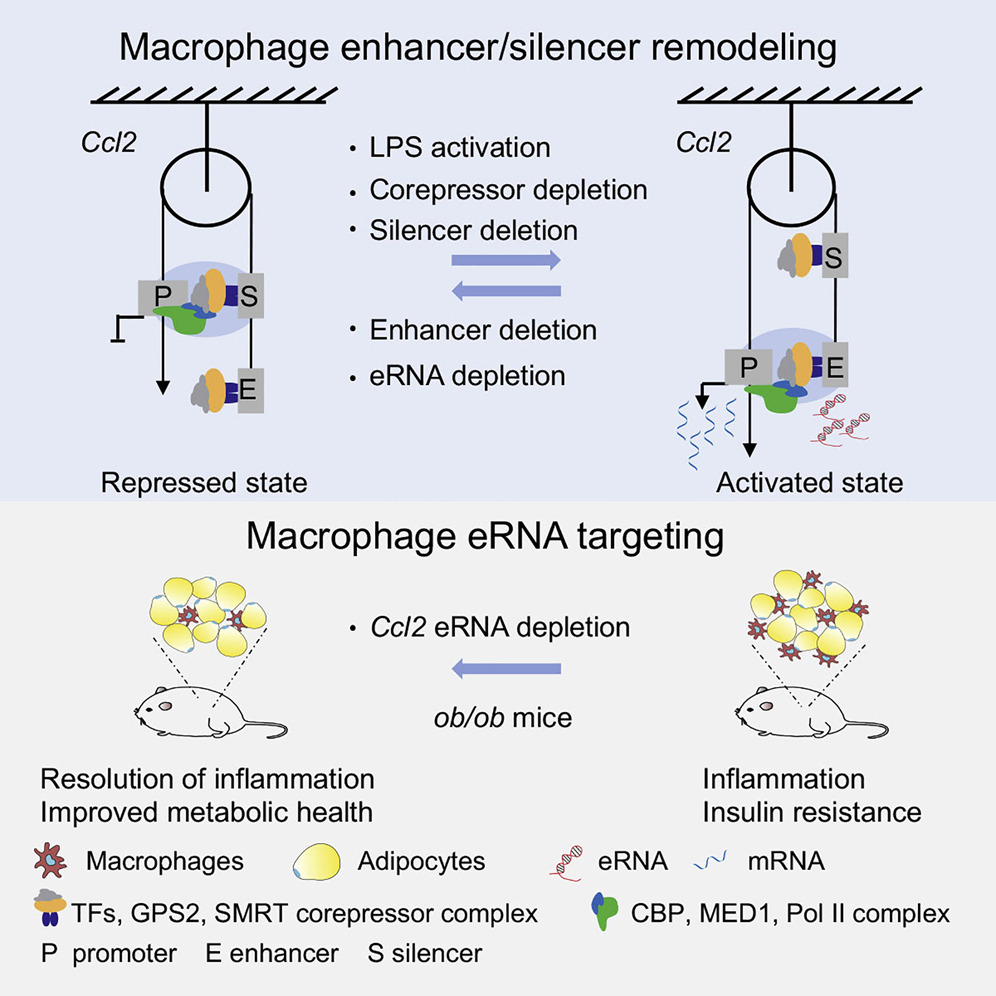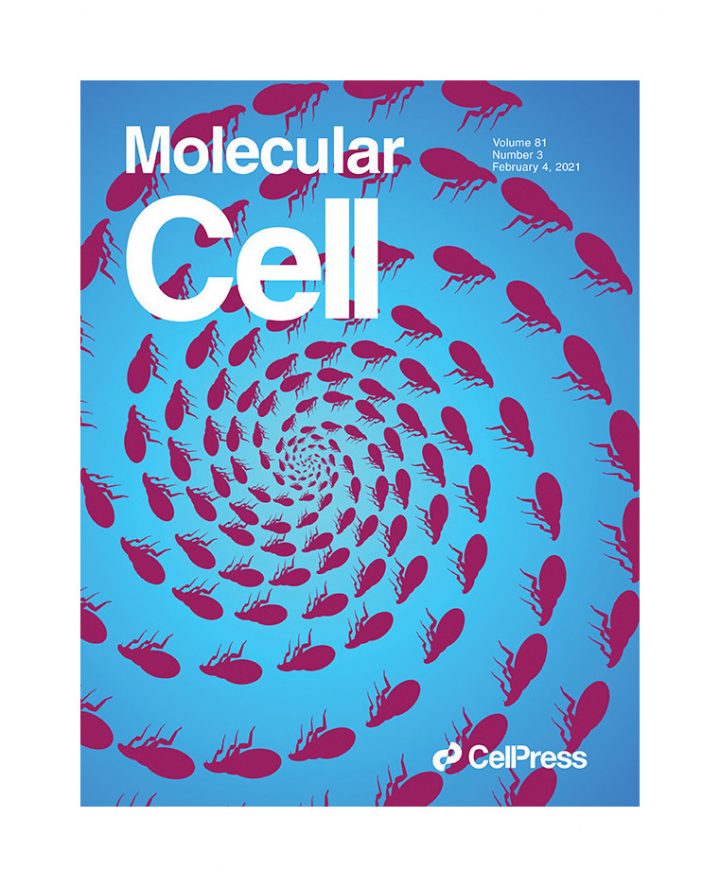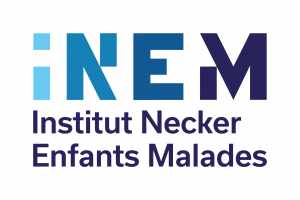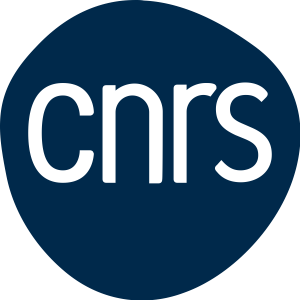The corepressors GPS2 and SMRT control enhancer and silencer remodeling via eRNA transcription during inflammatory activation of macrophages
Huang Z et al. Mol Cell 2021
While the role of transcription factors and coactivators in controlling enhancer activity and chromatin structure linked to gene expression is well established, the involvement of corepressors is not. Using inflammatory macrophage activation as a model, we investigate here a corepressor complex containing GPS2 and SMRT both genome-wide and at the Ccl2 locus, encoding the chemokine CCL2 (MCP-1). We report that corepressors co-occupy candidate enhancers along with the coactivators CBP (H3K27 acetylase) and MED1 (mediator) but act antagonistically by repressing eRNA transcription-coupled H3K27 acetylation. Genome editing, transcriptional interference, and cistrome analysis reveals that apparently related enhancer and silencer elements control Ccl2 transcription in opposite ways. 4C-seq indicates that corepressor depletion or inflammatory signaling functions mechanistically similarly to trigger enhancer activation. In ob/ob mice, adipose tissue macrophage-selective depletion of the Ccl2 enhancer-transcribed eRNA reduces metaflammation. Thus, the identified corepressor-eRNA-chemokine pathway operates in vivo and suggests therapeutic opportunities by targeting eRNAs in immuno-metabolic diseases.

To read the full paper, head to the following link:
https://www.sciencedirect.com/science/article/pii/S1097276520309618?via%3Dihub





